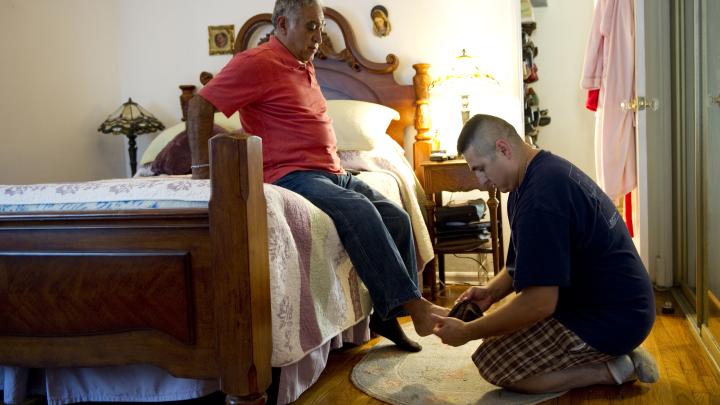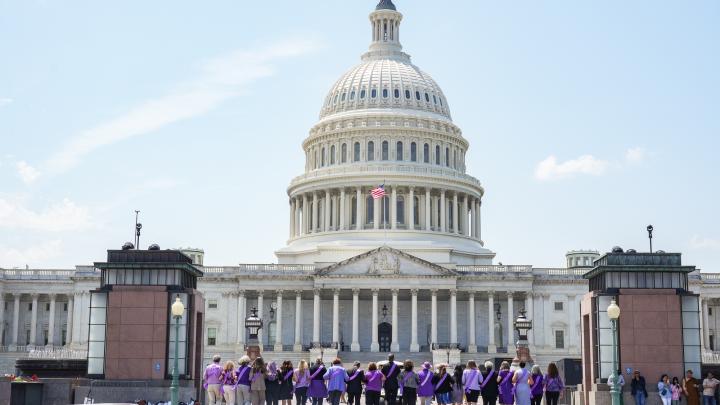
Accelerate Access to Dementia Screening
The bipartisan Alzheimer’s Screening and Prevention (ASAP) Act would create a pathway for Medicare coverage of blood-based dementia screening tests, accelerating access to earlier detection of Alzheimer’s and other dementia.

Prepare the Dementia Workforce
The bipartisan AADAPT Act will improve dementia workforce preparedness in communities throughout the nation.

Our Nation’s Commitment to Alzheimer’s Research and Public Health Response
Congress must continue to invest in Alzheimer’s and dementia research at the National Institutes of Health (NIH), and fund the Building Our Largest Dementia (BOLD) Infrastructure for Alzheimer’s Act (P.L. 115-406) to strengthen the public health infrastructure across the country by implementing effective Alzheimer’s intervention focused on public health issues such as increasing early detection and diagnosis, reducing risk, and preventing avoidable hospitalizations.

Support Our Nation's Dementia Caregivers
The bipartisan Credit for Caring Act will provide much-needed financial relief to those caring for a loved one by creating a new, non-refundable federal tax credit of up to $5,000 for eligible family caregivers.
Federal Priorities We Support
AIM is also a proud supporter of the following priorities in the 119th Congress.
AARP Coalition Letter: Credit for Caring Act
CONNECT for Health Act
Credit for Caring Act
Essential Caregivers Act of 2025
House E&C Health Subcommittee: FY26 HHS Budget
House Veterans' Affairs Hearing: Veterans in Community Care
Older Americans Act (OAA)
Senage Aging Hearing: Aging in Place
Senate Aging Hearing: Breaking the Cycle of Senior Loneliness
Senate Aging Hearing: Combating Elder Abuse & Neglect
Senate Aging Hearing: Optimizing Longevity: From Research to Action
Senate Aging Hearing: Preparing for Disasters
Senate Aging Hearing: Renewing Commitment to OAA
Senate Appropriations Hearing: Biomedical Research
Senate HELP Committee: FY26 HHS Budget
Senate HELP Committee: Modernizing the National Institutes of Health
Senate HELP Hearing: The Future of Biotech

Your Guide to Advocacy
Here’s everything you need to make the most of your year-round advocacy efforts to improve the lives of those impacted by Alzheimer’s and all other dementia. This guide will be updated throughout the year as our policy priorities are introduced and advanced.
